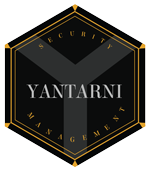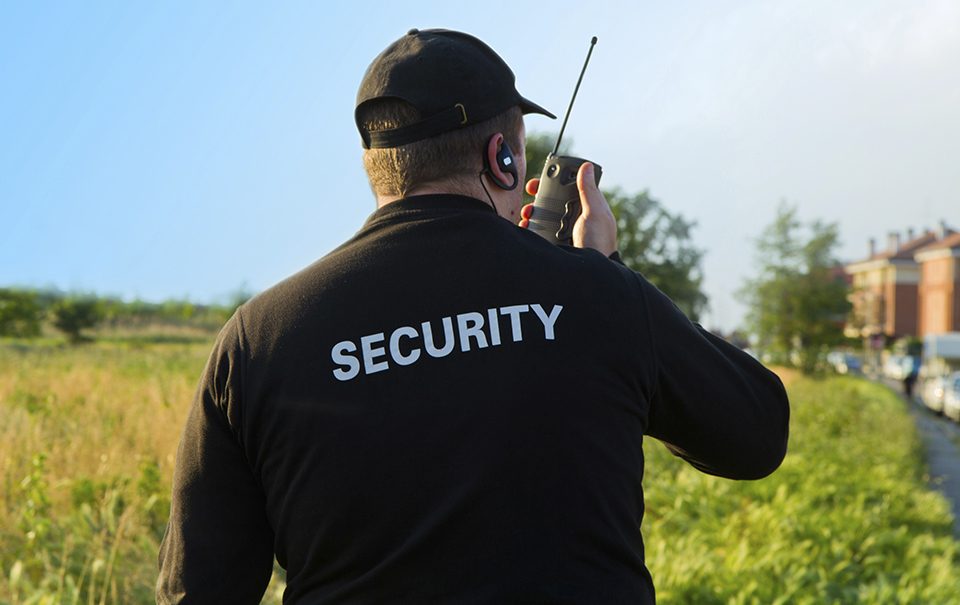6 Important Factors When Hiring Security Personnel
By Jose Luis Herrera
It is common to hear various complaints about “los polis” (private security guards), the private security companies and the service that they provide. Surely many of these claims, if not all, have good reason: it is true, in general terms (and except for honorable exceptions) their performance is susceptible of significant improvements.
Now, if this is a truth for all known for so long, there should already be a solution to the issue, but no, obviously not so; we continue to live daily with the same scenario, with the same litany of protests, coming from costumers and end users.
Let us then analyze some of the elements that make up this equation:
1. Personnel profile
Any serious and organized company structures its human resource based on its needs, creates job descriptions, which include a detailed list of qualities and skills that a person must possess to successfully perform a position.
The reality is that in most cases the client has not clearly established the job description that the security guard will occupy, or what the profile of the person in charge should be.
Here is where most of our problems with private security services begin.
It is worth asking, in addition, what kind of verification does our security provider makes to the personnel that he has assigned to our company, merchandise or, even more critical, to our house or condominium.
2. Orders
Knowing clearly the responsibilities of a position is essential to be able to carry out an activity as the organization expects. Once again, when we go to the different locations where security personnel are on duty, they are unaware of their specific functions. In the best of cases they exist, but they are usually very technical and dense texts, which have not been well understood by the guards, usually they have not even read them. The high turnover of staff and frequent absenteeism are two factors that also affect this point; both will be reviewed in another article.
3. Equipment
Another important aspect in the daily work of security is having the right tools. We can hardly ask a security guard to make an effective night round if we have not provided something as simple as a flashlight of acceptable quality, as well as batteries for its operation. Nor can we expect too much from them in the rain if no one has given them a raincoat or proper footwear. In the same way, the cold weather clothing, weapons (and ammunition) in good condition and with periodic preventive maintenance, among others, is elementary.
4. Conditions
The physical space in which they must carry out their work is also worthy of revision. Many times the furniture is old and rickety, when it is not that they are out in the open; lighting and even ventilation leave a lot to be desired in most cases. Ergonomic reviews often obviate the positions of the security personnel. To all this, let´s add the fact that the security guards are subjected to these conditions for 12 or 24 hours, or even more. This last point deserves a complete article, for now let’s settle for imagining what it means to carry out a task, whatever it may be, for 12, 24, 48 or more hours in an uninterrupted way; could any of us hardly have flattering results over time? For most, they do not have a reliable mechanism to verify their rounds, however we hope they do not sleep during the night. We are too optimistic!
5. Supervision
Just as many security companies do not pay attention to what we believe deserve the profile design and the guards’ orders, something similar happens with the level of the supervisors. These are usually no more than an errand person that is limited to making presence through a path (usually routine) to sign a logbook as evidence of their “supervision”, as well as to collect the complaints and concerns of their staff. Generally there is no structured agenda of what to inspect at each visit, does not know the orders of each post, so they are not able to verify if the guard is fulfilling their obligations and will not have a satisfactory answer (or even) to the requirements made by the staff.
6. Motivation
This point shows several edges for the analysis, but surely the most significant is the one referring to the pay, because of the impact on the security personnel. Not only do security guards earn the minimum wage, but also in many cases the employer violates the law and pays less than that (through subterfuge), payments are often out of time, without receipts or explanation. Many times they are forced to pay for their uniforms, even at prices higher than the real cost (even though not only illogical, but it is against the law). The absence of overtime pay is another practice we encounter on a regular basis. We can continue with the list of details regarding the payment that, as we pointed out, have a negative impact on the morale of the guard. All this plays against the enthusiasm of security personnel, generating a climate of dissatisfaction that is often clearly reflected in their performance; it is necessary to understand that they are part of our internal processes and that it is necessary to seek mechanisms to improve their working conditions, or at least equate them with the legal framework.
In short, the usual landscape is an element that does not meet the minimum requirements for the job, does not have clear responsibilities, does not have the right tools for the work they do, the environment far from favoring its activity makes it difficult, it is not adequately supervised and, if that were not enough, security guards receive a poorly paid and untimely salary; in addition to the intrinsic risks of their profession.
Despite the disappointment that the previous paragraph may result, we expect a commendable performance from them, without doing much to change that scenario.
The key is to get involved in the service we receive, to make sure that someone checks the records of each item, to verify that those who provide the service have the “knowledge” to do it well, to make sure they clearly understand each and every assignment that are given to them, that it is endowed to do it and finally, to verify that each of the aspects mentioned above are in order so that those who are called to be key players in our security processes can effectively be an active part of that process , and not that they end up playing against us. For all this, it is necessary to audit our private security service providers.


